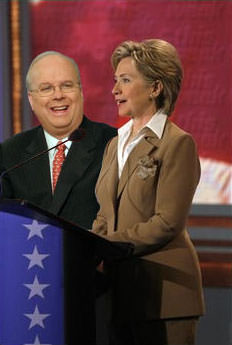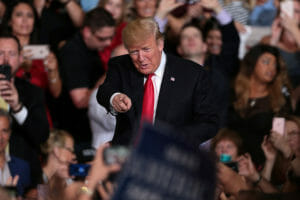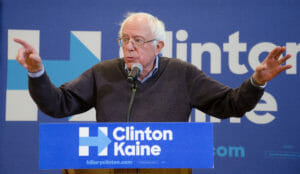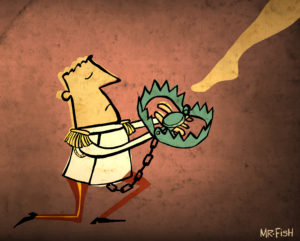‘Push Polling’ Taints Campaign in California
New polls show Barack Obama closing in on Hillary Clinton's lead, nationally, in California and among women voters, which may be why either the Clinton campaign or some ally is engaging in that unsavory campaign tactic, the push poll.
New polls show Barack Obama closing in on Hillary Clinton’s lead, nationally, in California and among women voters, which may be why either the Clinton campaign or some ally is engaging in that unsavory campaign tactic, the push poll.
The idea is to phone potential voters pretending to be a pollster, but to use the questions as a form of propaganda to push the voter toward your preferred candidate.
John McCain’s 2000 campaign was famously sunk in South Carolina when mysterious “pollsters” asked voters if they would be “more likely or less likely to vote for John McCain for president if you knew he had fathered an illegitimate black child?”
If the appearance of Karl Rove politics in the campaign is eventually traced back to Clinton headquarters, it may not shock political observers. Both Clinton’s campaign manager and her husband are said to have admired Rove’s strategies in the past.
Your support matters…Los Angeles Times:
But a few minutes into the conversation Ed [one of those who received a push-poll telephone call] says he noticed a strange pattern developing to the questions. First of all, the “pollster” was only asking about four candidates, three Democrats — Hillary Clinton, Barack Obama and John Edwards, who was still in the race at the time — and one Republican — John McCain.
Also, every question about Clinton was curiously positive, Coghlan recalls. The caller said things like, if you knew that Sen. Clinton believed the country had a serious home mortgage problem and had made proposals to freeze mortgage rates and save families from foreclosure, would you be more likely or less likely to vote for her?
Ed said, of course, more likely.
Every question about the other candidates was negative. If Ed knew, for instance, that as a state senator Obama had voted “present” 43 times instead of taking a yes or no stand “for what he believed,” would Ed be more or less likely to vote for him?
“That’s when I caught on,” said Coghlan. He realized then that he was being push-polled. That malicious political virus that is designed not to elicit answers but to spread positive information about one candidate and negative information about all others under the guise of an honest poll had arrived in Southern California within days of the important election.
Independent journalism is under threat and overshadowed by heavily funded mainstream media.
You can help level the playing field. Become a member.
Your tax-deductible contribution keeps us digging beneath the headlines to give you thought-provoking, investigative reporting and analysis that unearths what's really happening- without compromise.
Give today to support our courageous, independent journalists.




You need to be a supporter to comment.
There are currently no responses to this article.
Be the first to respond.